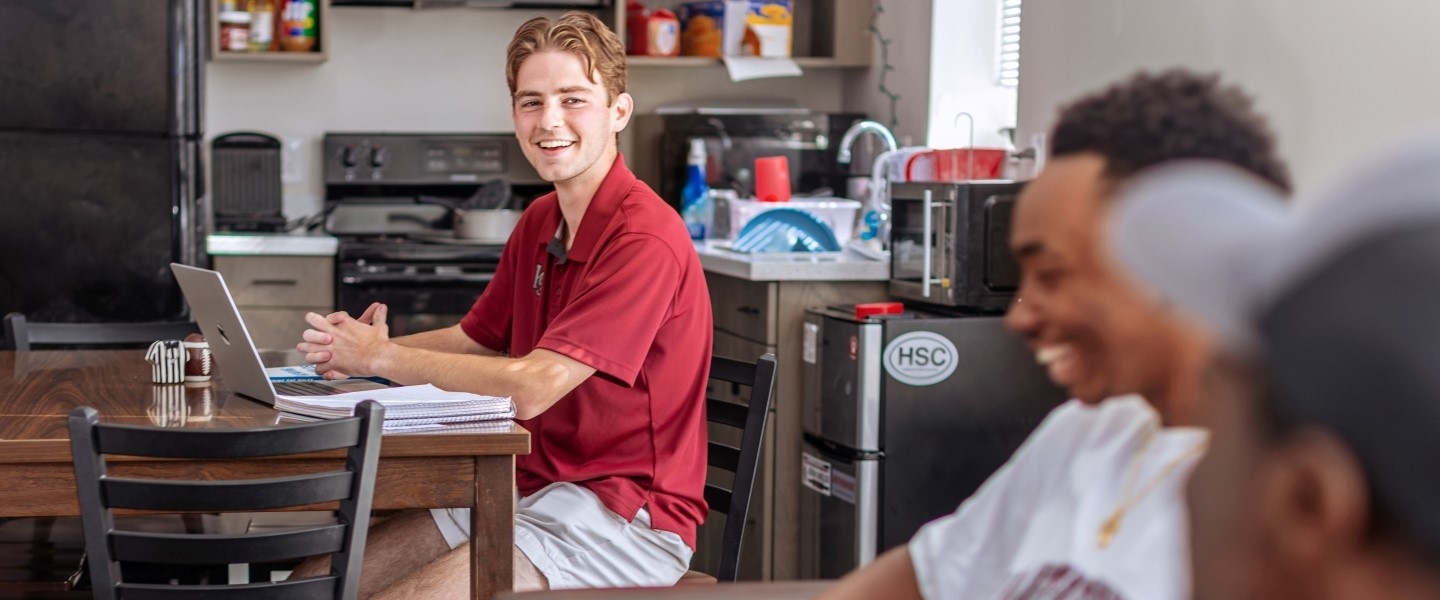
Connecting advising, enhancing learning, engaging community
As freshman roommates and hallmates meet the new and challenging environment of college, they develop some of their most lasting friendships. For students participating in Living and Learning Communities - which combine the residential and academic functions central to a student's first year - the roots of these friendships become intellectual as well as social.
Learning Communities, a group of 9-12 freshman who are enrolled together in a class and live together on the same residence hall, are designed to bring together students, academic advisors, faculty, and peer mentors in a shared academic and co-curricular experience. They link the student to an academic advisor, to a course, and to the other students in his residence hall with the goals of creating a holistic learning experience that will improve the quality of classroom time, increase student success rates, and arm freshmen with the personal connections and decision making and self-advocacy skills essential to a successful and fulfilling college experience. From the very beginning, freshmen learn that Hampden-Sydney is a place in which ideas are not simply a part of the classroom, but rather a part of college life.

